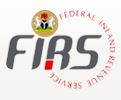
ABUJA, Federal Republic of Nigeria. The Federal Inland Revenue Service (FIRS) has identified over 200 oil and gas companies which have not filed returns for 2015, as well as 35,650 corporate bodies which have not been paying tax.
Consequently, the FIRS has written to the oil and gas companies directly or through their tax consultants to comply before the end of the year.
The agency further revealed that, within 26 days, it had registered 35,650 corporate taxpayers and 22,000 individual taxpayers who had not been paying tax.
Speaking on the sidelines of KPMG’s tax breakfast meeting in Lagos, acting executive chairman, FIRS, Tunde Fowler, said as part of strategies to engage stakeholders, FIRS in October 12, 2015 commenced a nationwide tax registration drive (with focus on VAT) , to bring in all unregistered taxpayers into the tax net.
A nationwide VAT and withholding tax (WHT) compliance check was also commenced on the same date where the agency discovered that over N117bn paid from September to date.
“The above complements our ongoing long-term projects, such as Integrated Tax Administration System (ITAS), which will automate all core tax administration processes (registration, filing, audit, etc), provision of multiple tax payment channels such as e-tax pay and VAT Auto Collect, which are all aimed at making compliance easier for taxpayers,” Fowler stated.
He disclosed that tax registration forms had been simplified for ease of use by taxpayers. The forms, which are currently in use nationwide, were reduced from 13 pages to one page and the fields to be filled were reduced from 115 to 20 for corporates and 35 for individuals.
He noted as part of strategies to engage stakeholders, the presentation at the Nigeria Governors’ Forum Conference on Internally Generated Revenue (IGR) held on November 16, 2015, where the need to focus on tax revenue and improve collaboration between states and the federal government as an approach for improving IGR was highlighted.
Fowler said that, at the moment, focus is on moral persuasion for taxpayers to voluntarily comply; where this approach does not produce the expected results, “we will move to legal enforcement.”
Going forward, he said there would be greater emphasis on the role of the Tax Consultants in ensuring compliance by their clients. “As a start, we have written letters to the major firms, including KPMG identifying some of their non-compliant clients,” he said.
“We will, therefore, continue to collaborate and engage with stakeholders so that our message of voluntary compliance as the first line approach for managing taxpayers is understood and internalised by tax consultants, taxpayers and all other stakeholders,” Fowler added.
Meanwhile, KPMG has launched the maiden edition of its tax risk management survey report. Presenting the survey report, Olanike James, partner, financial service/tax management consulting, tax, regulatory, and people services, KPMG, Nigeria, said organisations need to understand and manage tax risks, just as all other aspects of enterprise and business risks facing their business, in order to enhance tax cost optimisation, improve business performance, and create shareholder value.
Credit: Leadership (Nigeria)




